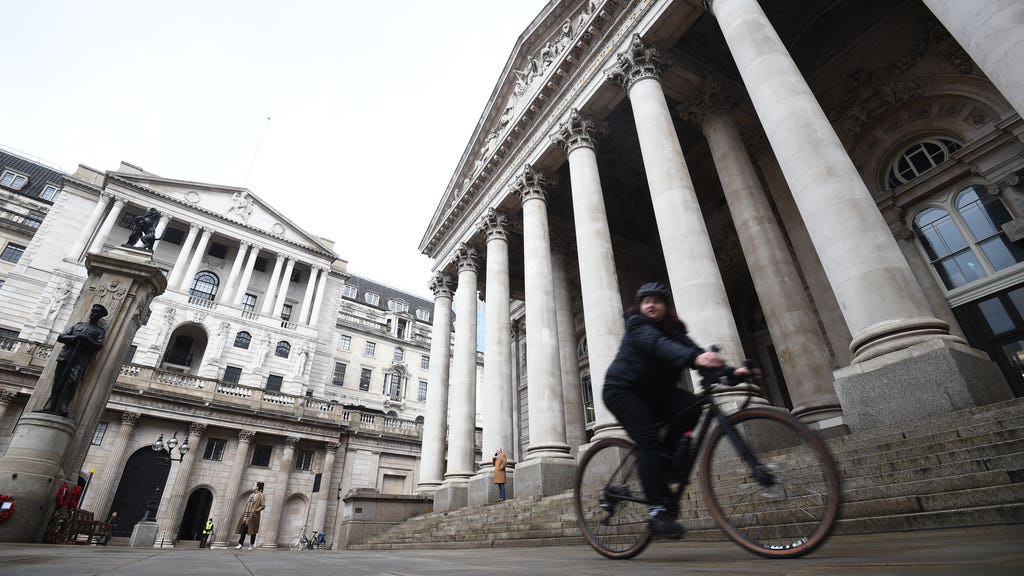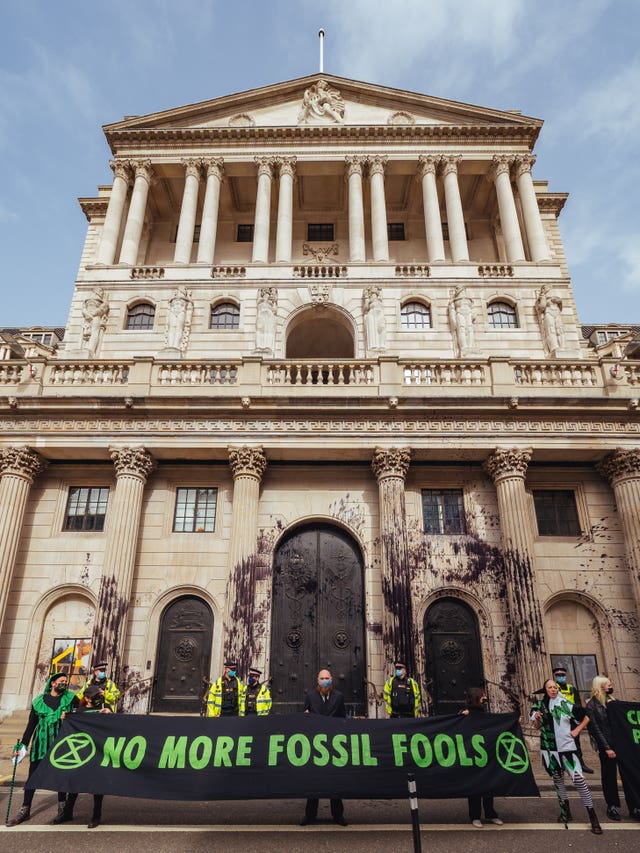Bank Of England Hits 2030 Climate Target Early As Pandemic Affects Air Travel

The Bank of England has said it briefly hit its climate targets nine years early, as policymakers were unable to jet around the globe due to the pandemic.
In its second annual climate-related financial disclosures report, the Bank said its carbon emissions temporarily plunged by 74% this year – smashing through its target to reduce its footprint by 63% by 2030.
The Bank said this was due to the combined impact of the Covid-19 crisis on air travel, as well as its move to renewable sources of electricity.

Overall, the Bank said emissions – from powering its buildings, printing banknotes and air travel – reduced by 53% in 2020-21.
This was the largest drop in its carbon footprint in a single year since the Bank began measuring this five years ago.
It expects some of the carbon emissions reduction to unwind as international travel restrictions ease and air travel resumes.
But it stressed it remains on track to meet its 2030 carbon target and this year also pledged to be net zero by 2050 at the latest.
Bank governor Andrew Bailey said: “Despite the challenges posed by Covid, we have delivered on our climate commitments.”
He added: “As we look ahead to a decade that climate science tells us must deliver real climate action, the Bank of England will continue to play its part.
“Key to our success will be turning novel climate-related work such as disclosures and supervisory expectations into business-as-usual operations.
“This year’s report represents another big step on that journey.”
The Bank of England’s climate disclosure report today revealed that the central bank’s asset purchases are funding 3C global heating – double the 1.5C target the UK government is committed to via the Paris Agreement.
Our full response 👇https://t.co/hKM9emdVvT
— Positive Money (@PositiveMoneyUK) June 17, 2021
The Bank’s report also showed that the carbon footprint of its corporate bond portfolio – which has doubled in its emergency response to the pandemic – reduced by 9%.
It said this was not due to the impact of the pandemic, but reflected reductions in emissions from corporate issuers.
But sustainable economy campaign group Positive Money called on the Bank to step up its efforts after claiming the report showed its asset purchases funded 3C of global heating – double the 1.5C target the UK government is committed to via the Paris Agreement.
David Barmes, senior economist at Positive Money, said: “Although it’s taking steps in the right direction, the Bank must show greater ambition and leadership ahead of the COP26 climate conference.
“Relying on existing policies, which are focused on gathering more data, just won’t cut it.”
The Bank last month vowed to make its corporate bond purchase scheme more “green”, by setting targets for the overall emissions of its holdings, as well as investing in green corporate bonds when they are available.
It has come under pressure in recent years to take carbon emissions within its corporate bond holdings into account.
The Bank invests £20 billion in corporate debt as part of its vast £895 billion bond-buying quantitative easing programme.
The Bank also recently announced its first stress test to scrutinise the resilience of Britain’s biggest banks and insurers against climate change risks over the next 30 years.




